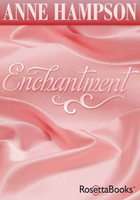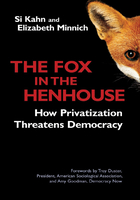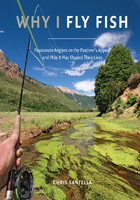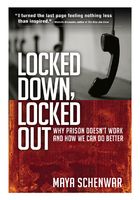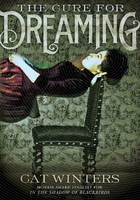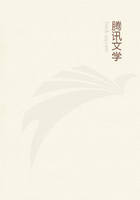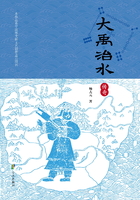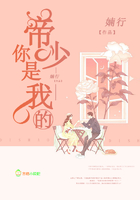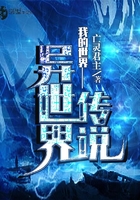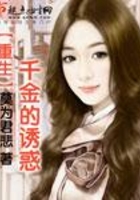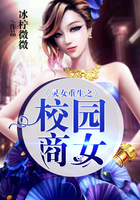Harold Pinter's speech of thanks on receiving the David Cohen British Literature Prize for 1995. The Prize is awarded every two years in recognition of a lifetime's achievement by a living British writer.
This is a great honour. Thank you very much.
I can't say that there was a very strong literary tradition in my family. My mother enjoyed reading the novels of A. J. Cronin and Arnold Bennett and my father (who left the house at 7.00 am and returned at 7.00 pm, working as a jobbing tailor) liked Westerns but there were very few books about the house. This was of course also due to the fact that we depended entirely upon libraries. Nobody could afford to buy books.
However, when I first had a poem published in a magazine called Poetry London my parents were quite pleased. I published the poem with my name spelt PINTA, as one of my aunts was convinced that we came from a distinguished Portuguese family, the Da Pintas. This has never been confirmed, nor do I know whether such a family ever existed. The whole thing seemed to be in quite violent conflict with my understanding that all four of my grandparents came from Odessa, or at least Hungary or perhaps even Poland.
There was tentative speculation that PINTA became PINTER in the course of flight from the Spanish Inquisition but whether they had a Spanish Inquisition in Portugal no one quite seemed to know, at least in Hackney, where we lived. Anyway I found the PINTA spelling quite attractive, although I didn't go as far as the 'DA'. And I dropped the whole idea shortly afterwards.
There was only one member of my family who appeared to be at all well-off, my great-uncle, Uncle Coleman, who was 'in business'. He always wore felt carpet-slippers and a skull cap at home and was a very courteous man. My father proposed that I show Uncle Coleman my poem in Poetry London when we next went to tea. I agreed, with some misgivings. My poem was called 'New Year in the Midlands' and was to do with a young actor's vagabond life in rep. It was heavily influenced by Dylan Thomas. It contained the following lines:
'This is the shine, the powder and blood and here am I, Straddled, exile always in one Whitbread Ale town, Or such.
My father and I sat in the room in silence, while Uncle Coleman read this poem. When he reached those lines he stopped, looked over the magazine at us and said: 'Whitbread shares are doing very well at the moment. Take my tip.'
That was in 1950, when I was 20.
My early reading was rather shapeless and disjointed, mainly, I believe, to do with the dislocation of a childhood in wartime. I was evacuated twice (once to Cornwall, where I more or less saw the sea for the first time) went to a number of schools and kept returning to London to more bombs, flying bombs and rockets. It wasn't a very conducive atmosphere for reading. But I finally settled in Hackney Downs Grammar School in late 1944 and made up for lost time. Hackney also had a great Public Library and there I discovered Joyce, Lawrence, Dostoevsky, Hemingway, Virginia Woolf, Rimbaud, Yeats etc.
Some years later, in I think 1951, having read an extract from Beckett's Watt in a magazine called Irish Writing? I looked for books by Beckett in library after library – with no success. Eventually I unearthed one – his first novel Murphy. It had been hanging about Bermondsey Public Reserve Library since 1938. I concluded that interest in Beckett was low and decided to keep it – on an extended loan, as it were. I still have it.
In 1944 I met Joseph Brearley, who came to the school to teach English. Joe Brearley was a tall Yorkshireman who suffered from malaria, had been torpedoed at sea in the war and possessed a passionate enthusiasm for English poetry and dramatic literature. There had been no drama in the school when he arrived in 1945 but before we knew where we were he announced that he would do a production of Macbeth and pointing at me in class said: 'And you, Pinter, will play Macbeth.' 'Me, sir?' I said. 'Yes. You.' he said. I was 15 and I did play Macbeth, in modern dress, wearing the uniform of a major-general. I was so pleased with this uniform that I wore it on the 38 bus to go home to tea after the dress rehearsal. Old ladies smiled at me. The bus conductor looked at me and said: 'Well, I don't know what to charge you.' My parents gave me the Collected Plays of Shakespeare to mark the occasion. I also managed to save up to buy a copy of Ulysses which I placed on the bookshelf in the living room. My father told me to take it off the shelf. He said he wouldn't have a book like that in the room where my mother served dinner.
Joe Brearley and I became close friends. We embarked on a series of long walks, which continued for years, starting from Hackney Downs, up to Springfield Park, along the River Lea, back up Lea Bridge Road, past Clapton Pond, through Mare Street to Bethnal Green. Shakespeare dominated our lives at that time (I mean the lives of my friends and me) but the revelation which Joe Brearley brought with him was John Webster. On our walks, we would declare into the wind, at the passing trolley-buses or indeed to the passers-by, nuggets of Webster, such as:
What would it pleasure me to have my throat cut
With diamonds? or to be smothered
With Cassia? or to be shot to death with pearls?
I know death hath ten thousand several doors
For men to take their exits: and tis found
They go on such strange geometric hinges
You may open them both ways: anyway, for heaven's sake,
So I were out of your whispering.
(The Duchess of Malfi)
or:
O I smell soot,
Most stinking soot, the chimney's a-fire,
My liver's purboiled like scotch holly-bread,
There's a plumber laying pipes in my guts.
(The White Devil)
or:
My soul, like to a ship in a black storm,
Is driven I know not whither.
(The White Devil)
or:
I have caught
An everlasting cold. I have lost my voice
Most irrecoverably.
(The White Devil)
or:
Cover her face; mine eyes dazzle; she died young.
(The Duchess of Malfi)
That language made me dizzy.
Joe Brearley fired my imagination. I can never forget him.
I started writing plays in 1957 and in 1958 The Birthday Party opened at the Lyric, Hammersmith, was massacred by the critics (with the exception of Harold Hobson) and was taken off after eight performances. I decided to pop in to the Thursday matinee. I was a few minutes late and the curtain had gone up. I ran up the stairs to the dress circle. An usherette stopped me. 'Where are you going?' she said. 'To the dress circle,' I said, 'I'm the author.' Her eyes, as I recall, misted over. 'Oh are you?' she said, 'Oh you poor chap. Listen, the dress circle's closed, but why don't you go in, go in and sit down, darling, if you like, go on.' I went into the empty dress circle and looked down into the stalls. Six people were watching the performance which, I must say, didn't seem to be generating very much electricity. I still have the box-office returns for the week. The Thursday matinee brought in two pounds six shillings.
In a career attended by a great deal of dramatic criticism one of the most interesting – and indeed acute – critical questions I've ever heard was when I was introduced to a young woman and her six-year-old son. The woman looked down at her son and said: 'This man is a very good writer.' The little boy looked at me and then at his mother and said: 'Can he do a "W"?'
I'm well aware that I have been described in some quarters as being 'enigmatic, taciturn, terse, prickly, explosive and forbidding'. Well, I do have my moods like anyone else, I won't deny it. But my writing life, which has gone on for roughly 45 years and isn't over yet, has been informed by a quite different set of characteristics which have nothing whatsoever to do with those descriptions. Quite simply, my writing life has been one of relish, challenge, excitement. Those words are almost, perhaps, truisms. But in fact they are true. Whether it be a poem, a play or a screenplay – if the relish, challenge and excitement in the language and through that language to character isn't there then nothing's there and nothing can exist.
So while I'm sure I am 'enigmatic, taciturn, terse, prickly, explosive and forbidding' I've also enjoyed my writing life – and indeed my life – to the hilt and I am deeply gratified to have been awarded this prize.

